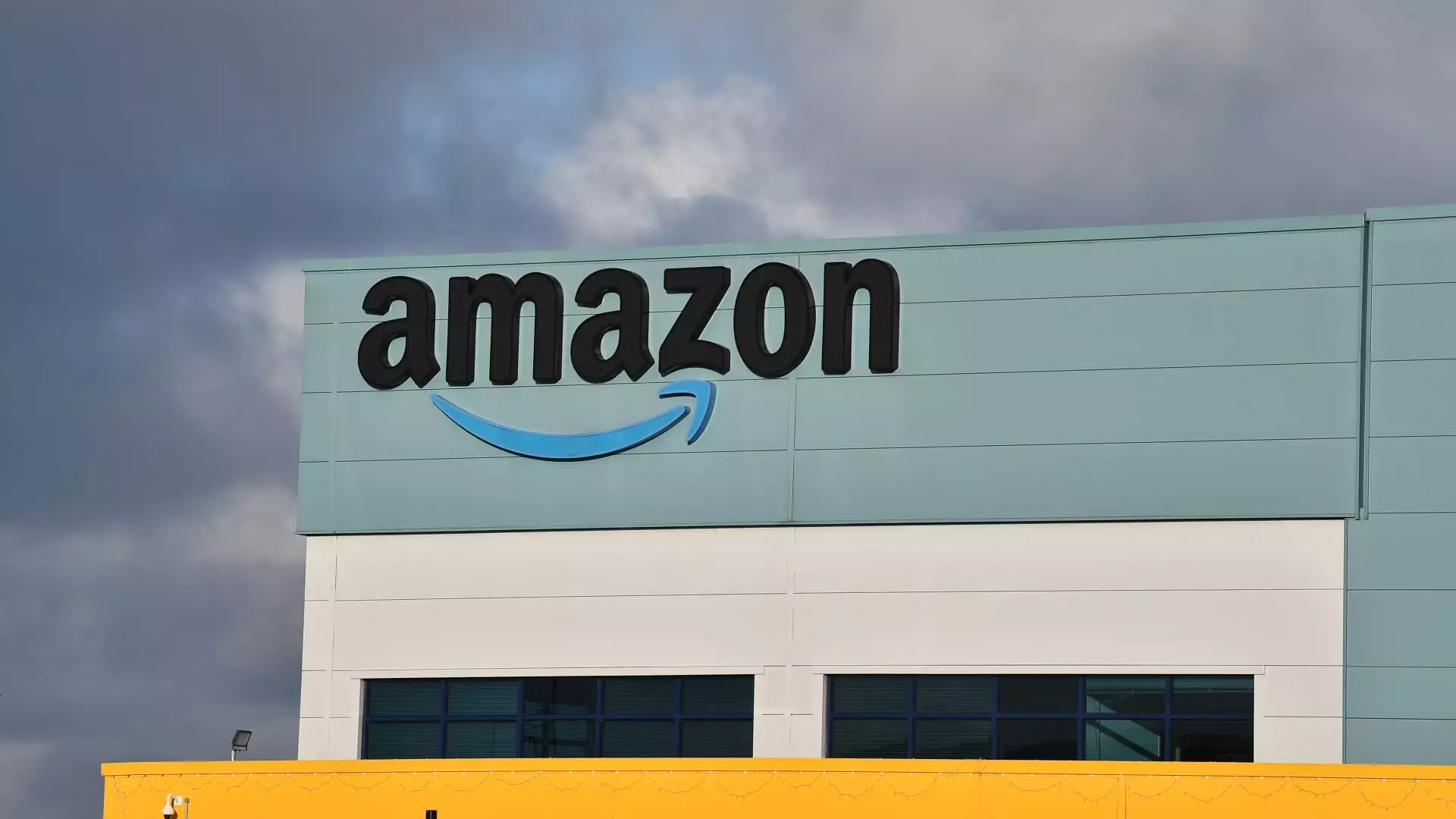In an audacious move signaling confidence in the U.K. economy, Amazon recently announced plans to inject £40 billion (approximately $54 billion) into the British market over the next three years. This substantial investment aims not only to construct four new fulfillment centers across the U.K.—massive warehouses designed to optimize order delivery—but also to expand and upgrade existing operational facilities. Amazon’s decision isn’t merely a corporate strategy; it represents a pivotal moment for the U.K., particularly as the country grapples with fluctuating economic conditions.
The backdrop of this investment speaks volumes. In April, the U.K. experienced a 0.3% contraction in gross domestic product (GDP) amidst challenges such as U.S. trade tariffs and domestic tax increases. Despite these hurdles, Amazon’s commitment brings a sense of optimism and marks a proactive effort to stimulate economic rejuvenation. Each fulfillment center is expected to bolster local economies, create thousands of jobs, and serve as a counterbalance to an economic landscape that is stumbling.
Job Creation and Economic Benefits
The ripple effect of Amazon’s investment will manifest prominently in job creation. The company plans to add 4,000 new positions, with significant personnel at its forthcoming fulfillment centers in Hull and Northampton. This surge in employment opportunities not only enriches the communities where Amazon operates but also empowers the wider economy. With U.K. Prime Minister Keir Starmer hailing the move as indicative of the government’s growth plan yielding results, it’s hard to overlook how strategic partnerships between tech giants and government initiatives can harmonize to foster economic resilience.
In essence, this investment translates into more than just numbers; it represents a boost in consumer confidence and drives productivity. For the government, attracting such substantial investments is crucial in laying the groundwork for a knowledge-driven economy. Amazon’s foresight in enhancing the U.K.’s infrastructure will help create a more efficient logistics network, which in turn can facilitate the growth of smaller businesses that rely on robust delivery systems.
Expansion and Technological Advancements
What is particularly noteworthy about Amazon’s investment is its multifaceted approach. Beyond merely enlarging its footprint with additional warehouses, the tech behemoth is focusing on enhancing its existing infrastructure and investing in advanced technology. By improving its transportation networks across the U.K. and redeveloping facilities like the Bray Film Studios—acquired last year—Amazon is positioning itself as a critical player not just in the e-commerce sector, but in the broader tech landscape.
This could have far-reaching implications for technological advancements within the U.K. With Amazon’s ongoing commitment established previously, including an £8 billion investment aimed at bolstering data centers, the ripple effects can have lasting repercussions on the adoption of artificial intelligence and automation across industries. The transition into a digitally-driven economy is paramount, and Amazon’s role could potentially act as a catalyst that encourages the proliferation of tech startups and innovations throughout the country.
The Competitive Landscape
Nevertheless, Amazon’s ambitious plans come at a time of competing narratives within the tech industry. Recently, TikTok announced its own expansion plans in London, further enhancing the attractiveness of the U.K. as a global tech hub. This depicts a dual narrative where both challenges and opportunities coexist. The U.K. government has celebrated this influx of investment from major tech companies, yet the looming specter of tax hikes introduced by Finance Minister Rachel Reeves raises concerns.
Critics argue that such tax policies could deter startups, suggesting that the U.K. may be on the cusp of losing its competitive edge to more favorable environments abroad. In an industry that thrives on rapid growth and innovation, it is essential for the government to balance revenue generation with a nurturing ecosystem that supports entrepreneurship.
While tech giants like Amazon and TikTok view the U.K. as fertile ground for investment and growth, the sustainability of this landscape hinges on governmental policies that either foster or stifle innovation. How the U.K. navigates this complex interplay between taxation and investment will determine whether it can maintain its allure as a premier destination for technology-led enterprises.
In sum, Amazon’s enormous infusion of capital underscores an invigorating chapter for the U.K. economy. The coming years will be crucial as other industry players and the government work to cultivate an environment ripe for sustainable growth and innovation.

